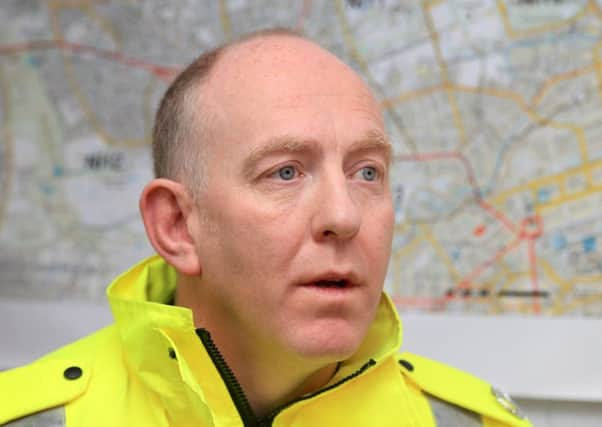Police officer took charge of firearms incident '˜from home'


Chief Superintendent Campbell Thomson said he had been on call when four gun-related incidents took place in the north of the country earlier this month.
He commanded the response to two of the incidents which were managed by officers at the Bilston Glen control room in Midlothian.
Advertisement
Hide AdAdvertisement
Hide AdThe details emerged as the Scottish Police Authority (SPA) board agreed to close the Police Scotland control room in Aberdeen. The controversial move is part of a national strategy which will see all 999 and non-emergency 101 calls handled by service centres in Govan, Motherwell and Bilston Glen, with three area control rooms covering the west (Govan), east (Bilston Glen) and north (Dundee) of the country.
Police Scotland said the strategic command of firearms incidents by on-call senior officers was standard practice.
Mr Thomson told the SPA he was “reassured” that processes would be in place to deal with major incidents in the north-east of the country after the closure of the Aberdeen control room.
He said: “Last week I was on call as the strategic firearms commander for the north and east of the country. During that period, we had four firearms incidents, which is unusual. Two in the east which were managed by East Overview (Bilston Glen), which I commanded from my own home in the north-east of Scotland.
“But it was local resources which were deployed and dealt with those incidents very effectively. Two other incidents, one in Inverness which was resolved with local officers on the ground commanded through North Overview (Dundee), and the other was in rural Aberdeenshire, commanded through the North Overview with local officers on the ground.”
Police Scotland said every firearms incident involved three levels of command.
Superintendent Kirk Kinnell, head of armed policing, said: “The strategic command role is basically to authorise the operation or make sure the tactics are proportionate.
“The person with all the information and intelligence would be in the control room and the operational commander on the ground would have that.”
He added: “The minute-to-minute decision makers are on the ground.”